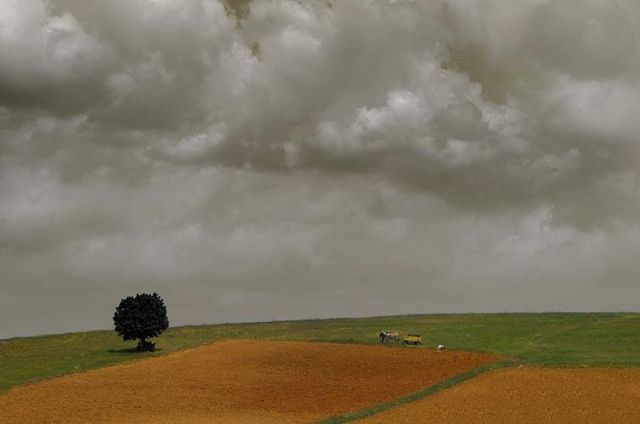Farming and Land Prices in Bulgaria
- on 12.10.08
- Bulgarian properties articles
- No Comments
Bulgaria is traditionally an agricultural country, and farming is still a major employer – 24 per cent of the workforce is employed in farming. Land has always been an emotive subject in the country where so much of it was taken from private owners after 1945.The government has now returned thousands of acres of land to former owners or their descendants. This process, known as ‘restitution’, has resulted in a fragmentation of ownership leading to a massive decline in agricultural production in the 1990s due to lack of viable plots and a general lack of investment. This decline is now being reversed, but it will take time. Meanwhile, the former agricultural co-operatives that ran farming largely went bankrupt. Buying farmland can therefore be difficult because it involves seeking out many owners.
 The State Fund for Agriculture has begun to address these problems in recent years through EU-funded programmes to assemble larger pieces of land which are more viable, and to invest in new farm machinery, livestock and better crop production. Nevertheless, remarkably little farmland comes onto the open market, and most villages display hand-written notices asking the locals to sell their farmland (‘as kupuvam zemia – plashtam vednaga’-‘ I buy farmland; immediate payment’).
The State Fund for Agriculture has begun to address these problems in recent years through EU-funded programmes to assemble larger pieces of land which are more viable, and to invest in new farm machinery, livestock and better crop production. Nevertheless, remarkably little farmland comes onto the open market, and most villages display hand-written notices asking the locals to sell their farmland (‘as kupuvam zemia – plashtam vednaga’-‘ I buy farmland; immediate payment’).
The confirmation that Bulgaria would join the EU came in 1999, although a date was not set until 2003. Since then, money has been poured into farming from EU structural funds – Bulgaria needed to upgrade its agriculture to compete with other EU countries and to ensure it meets EU standards in health and hygiene.The trend has been for smallholdings to remain limited to household production and for larger agribusinesses to buy up agricultural land and set up larger farming units. Demographics also play a part. Bulgarian farmers are getting older, and the younger generation tend to look for careers in the towns and cities, or abroad. The larger farms are thus investing in machinery and new tractors to replace the largely labour-intensive farming (and horse and cart) of the previous generation.
However, there remains considerable scope to work with the many local foods and products that Bulgaria produces and which do not currently find their way
3 UK markets. Britain has experienced a food renaissance in recent years, with 0cal, fresh and premium-branded foods in high demand. In Bulgaria the
pression ‘organic food’ did not even exist until recently, because most food is and organic anyway. Products such asyogurt, mushrooms, wine, herbs and many fruits and vegetables offer opportunities for a business with the righri expertise.The market for organic food will undoubtedly continue to grow ovei thecomingyears.
If you are interested in direct farming you will need to register with the loca Ministry of Agriculture office as a registered farmer (each sector has its owr chamber) and perhaps also another branch of the Ministry to monitor activi ties. There are many publications in Bulgaria aimed at farmers and fooc producers but they aren’t in English. A local partner may be a good option otherwise you may need to hire an assistant to deal with the many aspects o translating and dealing with local red tape.
Comparative Agricultural Land Prices
β’Β Bulgaria-Β£125-500 per acre.
β’Β England-Β£500-2,000 per acre.
from Farmers Weekly and Imoti BC
Leave a Reply
You must be logged in to post a comment.